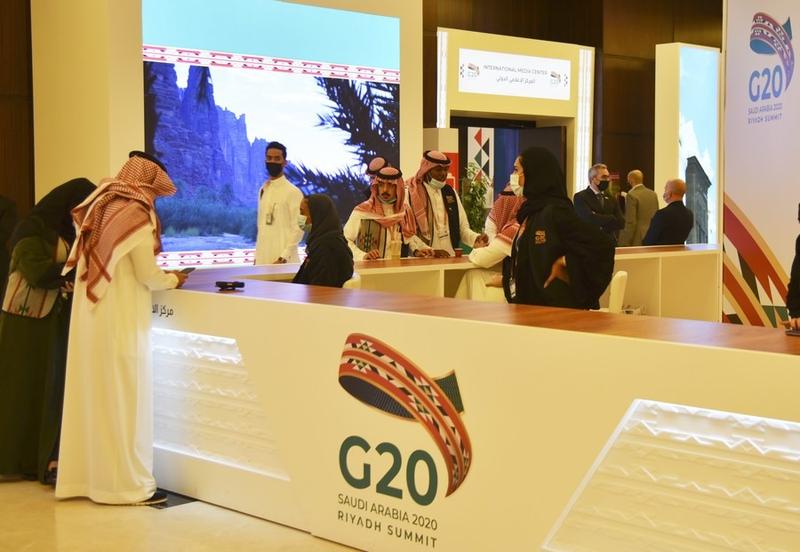 This file photo taken on Nov 19, 2020 shows the media center of the Group of 20 (G20) in Riyadh, Saudi Arabia. (PHOTO / XINHUA)
This file photo taken on Nov 19, 2020 shows the media center of the Group of 20 (G20) in Riyadh, Saudi Arabia. (PHOTO / XINHUA)
Some developing countries still struggling to combat the COVID-19 pandemic have been granted more time to stave off the economic effects after the G20 group of the world's largest economies extended its offer of temporary debt relief, introduced last year.
The debt freeze, launched in May 2020, was initially supposed to last until December 2020, but was then extended until June 2021. That deadline was pushed back until the end of this year.
The group is currently being chaired by Italy, and the country's Finance Minister Daniele Franco insisted this would be the last time the program was extended.
The debt freeze, launched in May 2020, was initially supposed to last until December 2020, but was then extended until June 2021. That deadline was pushed back until the end of this year
"This final extension will allow beneficiary countries to mobilize more resources to face the challenges of the crisis and, where appropriate, to move to a more structural approach to address debt vulnerabilities," a statement issued by the group said.
However, leading aid organizations have expressed doubts on how much impact the relief program has had so far. If all 73 countries that are eligible took part, it would cover around US$9.9 billion worth of debt repayments due in the second half of this year.
ALSO READ: World Bank chief expects G20 to extend debt relief until end-2021
So far, just 46 countries have applied for the help, and the debts must be repaid in full over no more than six years, once the relief program comes to an end.
Cycle of poverty
President of the World Bank David Malpass said action was needed to help struggling nations escape the cycle of poverty, which limits their ability to grow economically, setting them up for future social problems.
"History tells us that countries with no way out of overhanging burdens of debt don't grow and don't achieve lasting reductions in poverty," he said in an online speech.
He said private finance had a major role to play in trying to find a solution. "The private sector also needs to accept corporate responsibility-whether that's applying robust environmental and social standards, paying taxes, or playing its part in debt resolution," he added.
Leading international development charity Oxfam accused the G20 of "pushing the can down the road" rather than dealing with the issue of global debt in a more effective way.
"If debt cancellation is not part of the solution, the world's poorest countries will continue to struggle to cope with the pandemic and its devastating effects," said Nadia Daar, the head of Oxfam's office in Washington.
READ MORE: Officials: G20 to discuss uneven recovery from COVID-19 crisis
Debt remains a huge problem for many nations, making them all the more vulnerable to the enduring impact of the pandemic. Data from charity WaterAid quoted by the Reuters news agency showed that in 2019, Zambia spent 11 percent of its GDP on debt repayment. In the same year, Pakistan spent US$11 billion servicing its debts.


